8. Jodie Foster, Nell (Michael Apted, 1994)
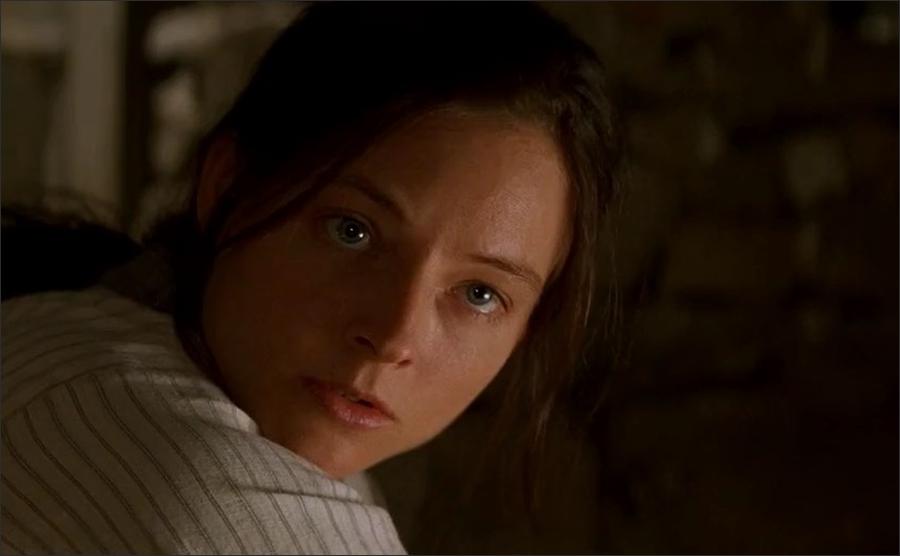
Of all the actors who began as child stars, how many can say they’ve had a longer and more successful run than Jodie Foster? From her first appearances in Disney films in the early 1970s to her run of acclaimed performances in The Accused and The Silence of the Lambs in later years as well as her continued forays behind the camera, Foster has proven herself to be one of the most tireless and hard-working actresses in the film industry.
However, even the greatest actors bit off more than they can chew sometimes. In Michael Apted’s Nell, Liam Neeson plays a doctor finds a woman – the title character – who grew up with her stroke-afflicted mother isolated from society and unable to speak English. The doctor attempts to help Nell integrate into society and find a way for her to communicate with the world.
The role was a challenging one, and although it garnered a considerable amount of acclaim, upon retrospect what once seemed heartfelt and sincere now comes off as hokey and overly sentimental.
Foster – as always – gave the performance her all, but at the end of the day she couldn’t craft a performance that gave the film a staying power. Despite the praise it received upon its release, it has aged poorly and will be remembered as a lesser work in the great actress’s filmography.
9. Cameron Diaz, Gangs of New York (Martin Scorsese, 2002)
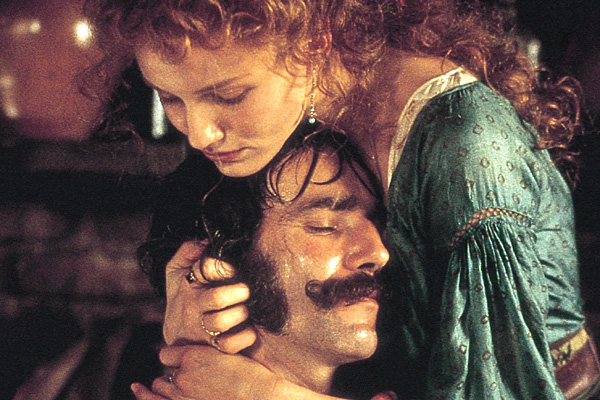
When Martin Scorsese announces a project, people get excited, and when it was announced he would be making a film about the criminal underworld of New York City in the mid 19th century, excitement hit critical mass. One of America’s most cherished filmmakers making a historical crime drama about his hometown was enough to excite even the most cynical of cinephiles. However, when the film was finally released in late 2002, reactions weren’t as laudatory as one might expect.
Daniel Day-Lewis’s performance was highly acclaimed, as were the attention to detail and the production design, but criticism was leveled at the film’s length, the occasionally messy storytelling, and Cameron Diaz’s performance.
Playing a streetwise pickpocket opposite Leonardo DiCaprio’s character (the weakest performance he’s given in a Scorsese film), Diaz – most famous from her roles in comedies like The Mask and There’s Something About Mary – was in over her head.
Next to actors like Day-Lewis (who fully immersed himself in his role, even refusing medication for pneumonia because it hadn’t been invented during the time in which the film was set), Diaz looked more like a kid lost in a world of adults than a rough and tumble thief in 1860s New York.
Indeed, her attempts to be seen as a serious actor went by the wayside after this film, and while there is much to admire about Scorsese’s picture, her performance stands out as the most egregious flaw.
10. Christina Ricci, Monster (Patty Jenkins, 2003)

Every once in a while an actor gives a performance so transformative and so extraordinary that the moment you see them on screen you immediately forget the actor and see only the character.
In films like There Will Be Blood and Sophie’s Choice, actors like Daniel Day-Lewis and Meryl Streep have inhabited their characters so deeply and so fully that they disappear as individuals and fully become their subjects.
In Patty Jenkins’ (Wonder Woman, anyone?) 2003 film Monster, the sordid tale of serial killer Aileen Wuornos, Charlize Theron gave such a performance. Her portrayal of a mentally ill woman and her violent descent into madness and bloodshed was so fully realized and inhabited that the famously beautiful actress was completely unrecognizable. She rightfully won the Academy Award that year (along with many others) and her performance has been noted by many as one of the greatest of all time.
In fact, the only thing keeping Monster from entering the pantheon of great films is Wuornos’s onscreen romance Selby Wall, played by Christina Ricci. Playing a young, naïve girl who gets swept along into a life of poverty and darkness by Wuornos, Ricci failed to meet the intensity and compassion of her co-stars performance. While her character was indeed young and inexperienced, Ricci almost seemed as lost and unsure as her character.
From scene to scene, Selby seemed unsure of what was going on outside of the moment, giving her character the sense that she wasn’t really naïve enough to fall for a serial killer, only that it was what a high school theater kid who thinks you convey emotion by raising your voice might think was good acting.
11. Johnny Depp, Charlie and the Chocolate Factory (Tim Burton, 2005)
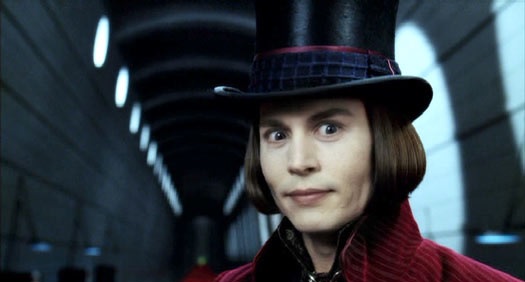
If you want a film that’s quirky, a little dark, and features elegant and eye-popping visuals, then Tim Burton is your guy. And ever since 1990, chances are if you hire Burton, you’re getting Johnny Depp too. Beginning with 1990’s Edward Scissorhands, Depp has appeared in nine of Burton’s films, ranging from Hollywood biopics to dark musicals about murderous barbers to stop motion films.
While the careers of both Burton and Depp have had their ups and downs, one of their most curious failures appeared in 2005 with their re-adaptation of Roald Dahl’s classic children’s novel Charlie and the Chocolate Factory.
While some of us are no doubt Gene Wilder purists, on paper it seems like a match made in heaven. The final product, however, was anything but sweet. While Burton’s earlier films had a kind of melancholy and whimsy to them, his more recent projects seem more like macabre parodies of his work rather than new additions, and Charlie was no exception.
Most surprising of all, Depp – fresh off his success as Captain Jack Sparrow – was the weak link in the project, turning Willy Wonka from a mysterious magician-like figure into a stunted man child, complete with odd shrieks and mannerisms and an unnecessary assortment of daddy issues. The end result is everything the book wasn’t: discomfiting, disturbing, and wholly disappointing.
12. Katie Holmes, Batman Begins (Christopher Nolan, 2005)
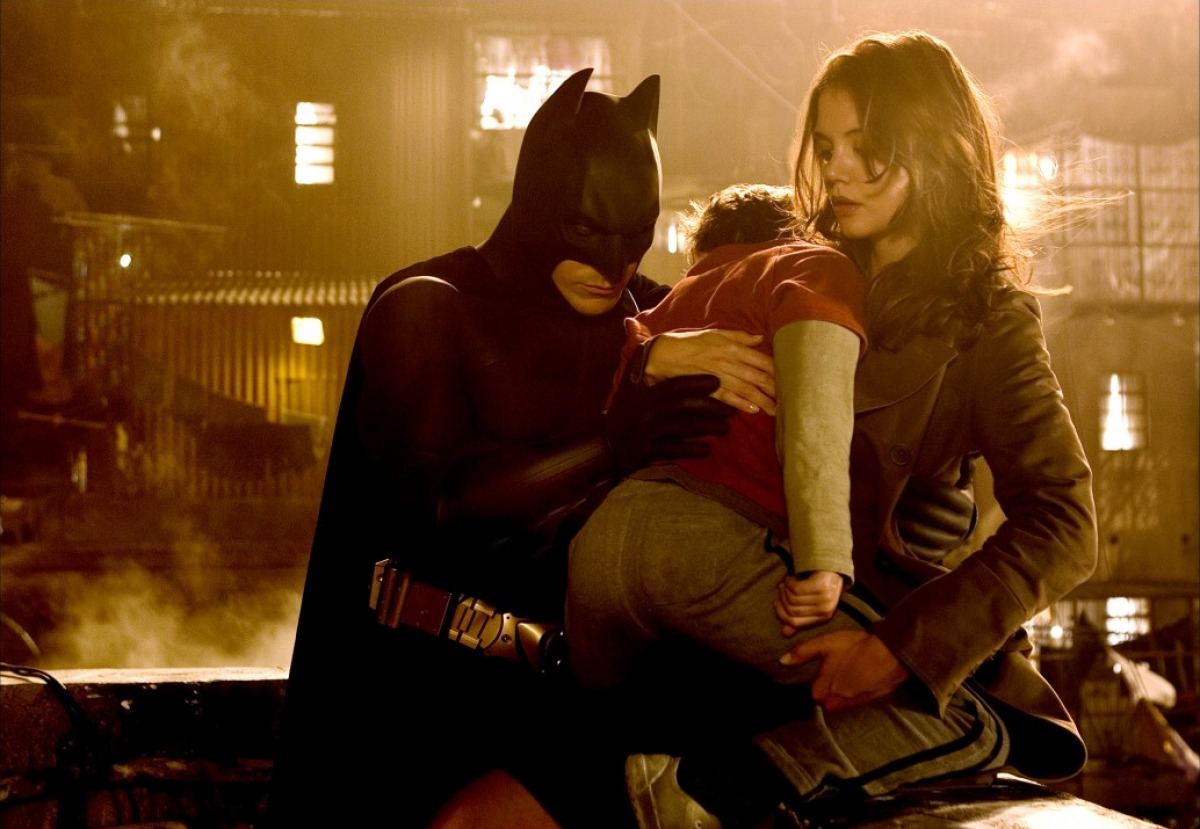
Looking back, the critical and commercial success of Christopher Nolan’s Dark Knight trilogy seems so ingrained in popular culture that it might be hard to imagine a time when Hollywood wanted nothing to do with Batman. Following the disaster that was Joel Schumacher’s Batman and Robin (featuring George Clooney, a Bat credit card and suits with nipples), studios were wary of funding another big budget adventure with the Caped Crusader.
After the success of his films Memento and Insomnia, Christopher Nolan took up the challenge and set out to make a Batman origin story that was grittier and more realistic than Schumacher’s campy one.
Though not as successful as its 2008 sequel starring the late Heath Ledger, Batman Begins was successful and was praised for both Christian Bale’s performance as well as the realism and dark atmosphere of the film.
However, most critics agreed that the film’s weak link was Katie Holmes, starring opposite Bale as his childhood friend-turned-idealistic district attorney tasked with cleaning up the crime-ridden streets of Gotham.
While comic book films have never been renowned for their sense of realism, Holmes’ vacuous and monotonous performance stuck out like a sore thumb next to actors like Bale, Cillian Murphy and Gary Oldman, who brought their A-game with them from the get go.
Thankfully, Holmes was not brought back to reprise her role in The Dark Knight, although it’s been said that this had more to do with her highly publicized relationship with Tom Cruise having the potential to overshadow her performance. Whatever the reason, it was the right one.
13. The Entire Cast of Gran Torino (Clint Eastwood, 2008)
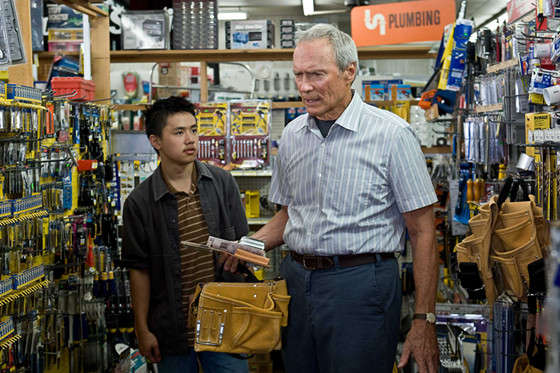
No matter your opinions of the man himself, you can’t argue that Clint Eastwood is a legend. To say nothing of his iconic stature as The Man With No Name in Sergio Leone’s Dollar Trilogy, the actor has starred in at least 42 films and directed 36, including the beautiful elegiac western Unforgiven. Even legends stumble, however, and one of the more interesting missteps in his filmography occurred with Gran Torino, which he himself directed.
Eastwood plays – you guessed it – a grumpy old man coming to terms with his life and impending death amidst neighborhood power struggle. While it’s one thing to say that Eastwood (arguably) plays himself as a cantankerous racist struggling to coexist with his Hmong neighbors and delivers a phoned-in performance, the real mystery is how he, as director, failed to get a decent performance out of EVERYONE in the film.
All the actors – from the local boy who steals his car to his older sister who attempts to introduce Eastwood to their culture to the gang of ruffians with whom Eastwood has his inevitable stand off with – are either miscast or out of their depths, reciting clunky dialogue and flailing around like they’re in a school play instead of a Hollywood production.
Coupled with the fact that Eastwood notoriously hates multiple takes, and you have a well-intentioned film from a good director that takes aim at multiple targets and misses all with dazzling aplomb.
14. Russell Crowe, Les Misérables (Tom Hooper, 2012)
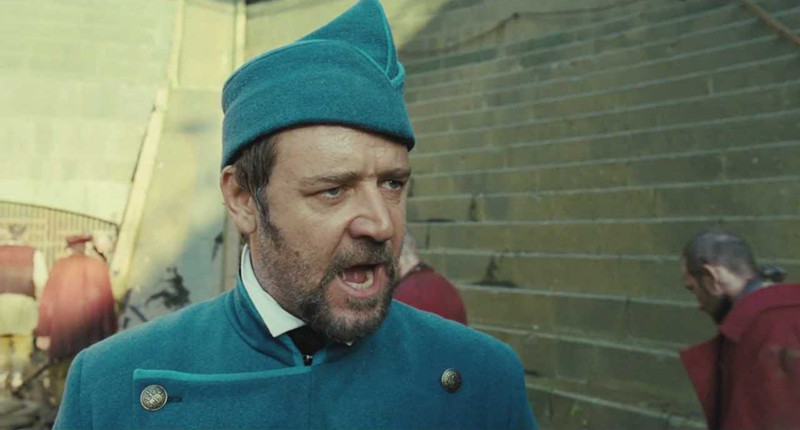
Tackling the scope and subject matter of Victor Hugo’s epic novel Les Misérables is a daunting feat for any filmmaker, much less one that’s a musical. In 2012, after years of development hell, the beloved Broadway show about love, loss, redemption and an armed student uprising in 1840s Paris hit the big screen, directed by Oscar winner Tom Hooper of The King’s Speech fame. Starring big names like Hugh Jackman, Anne Hathaway, and Russell Crowe (among others), the film features minimal dialogue and a largely sung-through narrative.
While he film was largely praised for the cast’s performances and singing ability, Crowe’s performance as Inspector Javert was singled out for criticism. While he was not the only non-singer in the cast, the others – Hathaway and Eddie Redmayne for example – managed to hold their own against more accomplished musical performers like Jackman and Samantha Barks.
Crowe, on the other hand, struggled to keep up as he proved himself incapable of carrying a tune. While the Kiwi-born Australian actor is a talented artist in his own right – he WOULD have made a good Javert in a non-musical adaptation of Les Miz – he was woefully out of his depth on this outing. While the film is certainly a marvel in many respects, its die hard fans may very well have to wait another 30 odd years to get an Inspector worthy of their demands.
15. Jennifer Lawrence, American Hustle (David O. Russell, 2013)
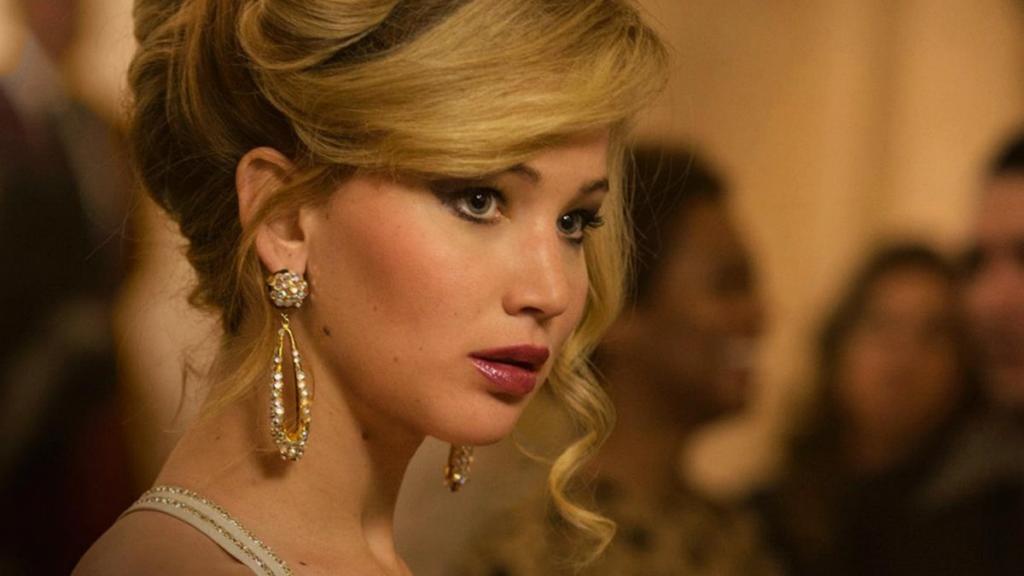
Few actresses in recent years have enjoyed such a meteoric rise to stardom like Jennifer Lawrence. Following her film debut in 2008, she received considerable attention for her role in 2010’s Winter’s Bone, followed by 2012’s Silver Lining’s Playbook, for which she won the Oscar for Best Actress.
Following this success, she signed up for American Hustle (directed by David O. Russell, who also directed her to her Oscar win) and found herself acting alongside some of the biggest names in Hollywood like Christian Bale, Amy Adams and Bradley Cooper.
The film – a zany mash up of 1970s glamor and excess based on a wild true story – was praised for its direction, screenplay, and the performances of its wide and varied ensemble of actors. But while Bale, Adams and Cooper lead the film, Lawrence falls behind for a very simple reason: she’s too young.
The other three actors were all in their late 30s during shooting, with a good amount of life experience behind them; Lawrence, on the other hand, was 23 and still quite young. Too young, some would say, to portray the late 30s single mother struggling with a failed marriage to Bale’s character convincingly.
Indeed, in certain scenes Lawrence talks with a tone of voice that hints at a character that doesn’t carry the weight of experience and learned wisdom that the script calls for. At times she even comes off as a girl playing dress up in her parents’ closet. Her appearances in X Men and the Hunger Games aside, Lawrence has a bright future ahead of her and films like American Hustle will soon be no more than a distant memory for most moviegoers.